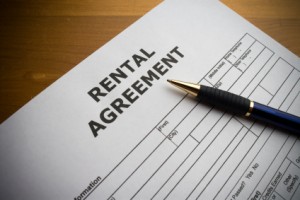Posted by Teresa on July 18, 2013 under Screening and Background Checks, Tenant Screening & Background Checks | 
 Out of any 10 lease applications, how many contain lies, omissions or truth-stretching? Unfortunately, many will. That’s why landlords and property managers can’t assume every applicant fills out an application truthfully. If you’re lucky, the majority will be hard-working, honest people who are simply looking for a great place to live. But can you count on every applicant to tell the truth? And how can you tell if they’re not?
Out of any 10 lease applications, how many contain lies, omissions or truth-stretching? Unfortunately, many will. That’s why landlords and property managers can’t assume every applicant fills out an application truthfully. If you’re lucky, the majority will be hard-working, honest people who are simply looking for a great place to live. But can you count on every applicant to tell the truth? And how can you tell if they’re not?
Verify, verify, verify! It’s up to you to do the digging and reveal the truth.
The best way is to do that is through a thorough background check, which can reveal the following information:
- Whether the applicant has ever used another name.
- If the Social Security Number listed is valid.
- Whether the applicant has declared bankruptcy, and when and where it was filed.
- Any liens or judgments against the applicant.
- Whether the previous addresses listed are accurate.
- Any addresses the applicant omitted.
- Whether the applicant is listed as a registered sex offender.
- Any flags on any of the addresses listed by the applicant.
What’s more, a background check can also tell you whether you can be confident in accepting the applicant’s check.
Of course, you’ll need to do some verification on your own, including contacting and talking to the applicant’s previous landlords and current employer. Be sure to verify that you’re actually talking to the property owner and a representative of the employer. Look up names and phone numbers online, and compare them to what the applicant provided.
Posted by Teresa on May 17, 2013 under Fair Housing Act, Landlord Tips, Tenant Screening & Background Checks | 
 Being a landlord isn’t easy. It’s a challenging way to make a living or earn extra money. However, investing in real estate and leasing property can be quite rewarding when done right. Avoiding these common landlord errors can keep you out of legal trouble, and make things a little easier.
Being a landlord isn’t easy. It’s a challenging way to make a living or earn extra money. However, investing in real estate and leasing property can be quite rewarding when done right. Avoiding these common landlord errors can keep you out of legal trouble, and make things a little easier.
Using the same old lease, or someone else’s lease: Landlords who’ve been leasing properties for a long time often use the same lease for decades. And those who are new at it, often download a lease agreement off the Internet, or borrow one from a friend. It’s true that most leases contain common language, but it’s best to have yours customized for your property, your circumstances and your preferences. It could be well worth it to sit down with a landlord-tenant lawyer and have your lease reviewed.
Forgetting that time equals money: You might not mind doing repairs, cutting the grass or performing maintenance at your rental properties. If you’re an expert at these things, it could be cost-effective to do it yourself. However, if your work is sub-par, it takes longer than it should or requires follow-up repairs, you are probably wasting your time—and losing money. Hire experts to do the things you can’t do, and focus on what you do well. Fill empty units, update your website or take classes to make yourself a better businessperson.
Breaking anti-discrimination laws: You cannot refuse to rent to a prospective tenant based on race, national origin, religion, familial status, color, gender or disability. Landlords are not allowed to ask prospective tenants questions that refer to these things, either.
Basing acceptance of a tenant on anything other than cold, hard facts: Look at an applicant’s previous rental history, current and former employment, income, and credit worthiness. Run a background check to weed out those with criminal records. But don’t make decisions based on how a tenant applicant looks or dresses, or the car he or she drives.
Failing to follow the same procedures with every applicant: You could be accused of discrimination if you don’t require each applicant to follow the same process.
Making decisions based on emotion: Every experienced landlord has regretted allowing a tenant to be late on rent “just this once,” or to letting a tenant move in without paying a security deposit up front because they promised to pay “next month.” Well, “just this once” is never once and “next month” never comes. It’s difficult to be tough, but landlording is a tough business. If you want to succeed, you’ve got to take a hard stance.
Posted by Teresa on February 19, 2013 under Landlord Paperwork and Forms, Landlord Tips | 
 Not raising the rent: most landlords raise the rent at regular intervals, to cover increases in maintenance costs and property taxes. Some do it annually, or whenever the lease is up for renewal. Others hesitate to raise the rent on good tenants who pay on time, for fear they will move out. But if your costs are increasing, you can’t keep rents steady—even for the best tenants. Besides, if new tenants move in and find out you’re charging them more than an existing tenant (and they will find out), they won’t be happy.
Not raising the rent: most landlords raise the rent at regular intervals, to cover increases in maintenance costs and property taxes. Some do it annually, or whenever the lease is up for renewal. Others hesitate to raise the rent on good tenants who pay on time, for fear they will move out. But if your costs are increasing, you can’t keep rents steady—even for the best tenants. Besides, if new tenants move in and find out you’re charging them more than an existing tenant (and they will find out), they won’t be happy.
Treating tenants differently: To continue, it’s all about treating tenants equally. If Unit A pays $600 per month, so should Unit B. If there is a no smoking rule, it must be enforced with all tenants. Don’t respond quickly when “nice” tenants have a leaking faucet, but make “problem” tenants wait. Failure to be fair and equitable to all tenants could leave you vulnerable to a fair housing complaint. It’s also a lot easier to explain to tenants asking for exceptions that you have to apply the rules equally to everyone.
Failure to conduct tenant screening: Time and again, landlords go on their “gut feeling” about tenants. That’s a mistake in two ways: 1) Making decisions based on appearance, the type of car a tenant drives or other arbitrary qualifications sets you up for discrimination claims. 2) No matter how long you’ve trusted your gut feelings about prospective tenants, you could be dead wrong. Check employment, previous landlords, conduct tenant background screening, and run a credit check on every applicant.
Asking the wrong questions: Here’s another potentially harmful situation that’s easy for landlords to get into. If you ask a prospective tenant if they plan on having children, or a female tenant if she’s married, you could be breaking the law. Keep things strictly business and avoid asking tenants personal questions.
Being unclear on policies and expectations: Clarify each policy, including rent payments, security deposits, parking, pets, smoking, maintenance schedules, excessive noise, garbage pickup, common areas, etc. Explain how security deposits work, and let tenants know up front how you handle deductions when they move out.
Letting tenants pay rent late: For some reason, many landlords and tenants play a little game every month where the rent is due on the first, but there’s a grace period of a few days, so the tenant doesn’t pay until the grace period is over, but then when they miss that deadline, the landlord gives them a few more days… and so on and so on, every month. Don’t be that landlord. If rent is due on the first, make sure your tenants know it. Don’t allow partial rent payments, either. And when they’re late, follow through with whatever consequences are laid out in your lease. Make it easier for everyone by allowing online rent payment or automatic payments from the tenant’s checking account to yours.
Posted by Teresa on December 19, 2012 under Landlord and Tenant FAQs, Landlord Tips | 
 In most states, it is the landlord’s responsibility to see that repairs are made within a reasonable time. But have you had tenants offer to make their own repairs? At first, it might seem like a reasonable idea. Your handy tenant offers to paint, repair the dishwasher or replace broken glass in your rental unit. In exchange, you offer a rent reduction. You experience fewer repair hassles and out-of-pocket expenses, and he or she saves some money. Everyone’s happy and nothing could go wrong, right?
In most states, it is the landlord’s responsibility to see that repairs are made within a reasonable time. But have you had tenants offer to make their own repairs? At first, it might seem like a reasonable idea. Your handy tenant offers to paint, repair the dishwasher or replace broken glass in your rental unit. In exchange, you offer a rent reduction. You experience fewer repair hassles and out-of-pocket expenses, and he or she saves some money. Everyone’s happy and nothing could go wrong, right?
As with most all-or-nothing statements, this one is definitely wrong. There are so many possible problems posed by allowing well-meaning tenants to perform repairs.
First of all, unless they do it for a living, even the handiest people don’t come close to the quality offered by a professional. And in many cases, they can cause more damage than they fix. One landlord reported that a simple dishwasher repair was performed incorrectly, resulting in a leak that went undetected for weeks, causing extensive damage to beams and subflooring.
Then, there is the issue of who pays for what. Does the tenant cover parts and labor, or will the landlord be expected to pick up the supplies and parts? If the tenant buys the paintbrushes, and gets a rent reduction, does the landlord then own the paintbrushes? Getting everything in writing might seem like a hassle for such a small job, but you can probably imagine how not doing so could make it much messier.
Finally, landlords must consider the potential for tenant injuries. Few tenants are licensed and insured on their own, so who is responsible for any injuries that occur? One landlord we know faced the potential for thousands of dollars in damages when her tenant replaced broken glass and was seriously injured in the process. The landlord’s liability policy did not cover the losses, since the tenant was not an employee. Eventually, the case was settled, but not without a great deal of time, worry and expense on the landlord’s part.
When you’re running a business, allowing non-professionals to perform work on your building is not the best approach. The potential for problems exists throughout the process, and the end result is rarely what you expected. The same applies to the business of landlording. Think twice before you allow a tenant to make repairs!
Posted by Teresa on December 21, 2010 under Landlord Tenant Lawsuits | 
 A recent case in Florida shows the U.S. Department of Housing and Urban Development (HUD) has little tolerance for racial discrimination against tenants. In this case, HUD charged the owners of a single-family home in Gibsonton, FL, with violating the Fair Housing Act (FHA). The charges include engaging in discriminatory housing practices for reneging on an agreement to rent the house to a woman and her children because they are African American. It also includes charges that the owners used racial slurs when referring to and addressing the family.
A recent case in Florida shows the U.S. Department of Housing and Urban Development (HUD) has little tolerance for racial discrimination against tenants. In this case, HUD charged the owners of a single-family home in Gibsonton, FL, with violating the Fair Housing Act (FHA). The charges include engaging in discriminatory housing practices for reneging on an agreement to rent the house to a woman and her children because they are African American. It also includes charges that the owners used racial slurs when referring to and addressing the family.
Most landlords are very familiar with the FHA, which bars discrimination against persons based on race, color, national origin, religion, sex, familial status (including children under the age of 18 living with parents or legal custodians), pregnant women (and people securing custody of children under the age of 18), and handicap (disability).
In the Florida case, the suit alleges that the owners initially agreed to rent the home to an African American woman and her three children. Two days after they moved in, the owner refused their rent payment. He then ordered the children out of the house while their mother was at work, and changed the locks. A relative found the kids about a quarter mile from the house, under a highway underpass.
Subsequent interactions between landlord and tenant included several uses of a racial slur, according to the tenant. The owners by then had rented the house to another tenant.
The case will be heard by an administrative law judge, who may award damages if he or she finds discrimination has occurred. The judge may impose punitive damages to deter further discrimination, as well.
The lesson here is nothing new: discriminating against a current or potential tenant on the basis of race is illegal. Landlords must be blind to race, disability, country of origin, religion, family status and color. And those who aren’t will face the consequences.
Posted by Teresa on September 14, 2010 under Landlord Paperwork and Forms, Landlord Tips, Tenant Screening & Background Checks | 
 1. Not approaching your rental business like a business. To be successful, all businesses need to follow a plan. They need to be capitalized. And they need to be run professionally. This takes time, energy and money. Some landlords are not willing to invest all of these resources into their businesses. Some don’t have a plan. Some don’t have enough capital to keep their businesses going when rent income falls below projections (if they even have projections). Being unable or unwilling to do all of these things will almost guarantee a rental property business that is not as successful as it should be.
1. Not approaching your rental business like a business. To be successful, all businesses need to follow a plan. They need to be capitalized. And they need to be run professionally. This takes time, energy and money. Some landlords are not willing to invest all of these resources into their businesses. Some don’t have a plan. Some don’t have enough capital to keep their businesses going when rent income falls below projections (if they even have projections). Being unable or unwilling to do all of these things will almost guarantee a rental property business that is not as successful as it should be.
2. Conducting less-than-professional relationships with tenants. Landlords vulnerable to becoming too personal with tenants are often sucked into giving extensions on paying rent, reducing security deposit requirements or otherwise allowing tenants to ignore the established rules. Tenants who suffer no consequences will usually continue to bend or break the rules. It may seem harsh, but just as you can’t walk out of store without paying for a gallon of milk, a tenant should not be allowed to live for free in your rental property—even for a day.
3. Treating tenants differently. Letting certain tenants slide on the rent, steering certain tenants toward certain units, and otherwise showing deferential treatment to an individual or group of tenants can land you in trouble quickly. Landlords are constantly taken to court on charges of discrimination for actions like these. You don’t want to be one of them.
4. Failing to document. Keeping excellent records is a habit that can save your business. It’s vital to make copies of everything from driver’s licenses (if legal in your area), move-in/move-out inspections, applications, tenant screening authorizations and lease documents. But consider making notes of phone and text messages, emails and snail mail communications, too. Even a simple spreadsheet can prove to a judge that you treat all tenants equally and follow the law.
5. Not knowing when to call in the professionals. A licensed electrician and plumber, landscaper, lawyer, accountant, tenant screening service and possibly a property management company should be on every landlord’s list of resources. You may not need all of them all of the time, but you will likely need them at some point in running a rental property business. Trying to do it all has been the downfall of many a real estate investor. Knowing when help is needed in managing rentals can save your sanity—and maybe even some of your profit!
Posted by Teresa on March 27, 2010 under Landlord Tenant Lawsuits, Landlord Tips | 
 Learning by others’ mistakes is a classic move. So read on for a few errors landlords can avoid—just because others have already made them.
Learning by others’ mistakes is a classic move. So read on for a few errors landlords can avoid—just because others have already made them.
Security deposits: Seems like security deposit issues are a top-5 cause of disputes between landlords and tenants. The problem can often be traced to miscommunications and unspoken expectations. Tenants sometimes assume they will receive 100% of their deposit back. It’s not their fault if they don’t understand how it works—it’s your job to fully explain the process, and what they stand to lose if they damage or otherwise alter the condition of the rental unit after they move in.
Have new tenants sign a statement that they have reviewed and understand your security deposit policy, move-in and move-out inspection lists, and then follow up with a thorough initial walk-through of the rental unit. Take photos and have tenants initial the condition of each item on the list. When they are ready to move out, schedule another walk-through with the tenant, establish damages and take more photos.
Failure to document, document, document. Keep pristine records—you never know when you’ll need them. Each tenant’s application, background screening and credit check report, lease documents and correspondence should be kept on file until three years after the end of the lease. Keep notes of emails and notes conversations, too (aside from the “nice day, huh?” conversations). Just keeping good records shows that you’re serious about your business—and someday, if you find yourself in front of a judge over a landlord/tenant dispute, it could work in your favor. It certainly can’t hurt!
Unintentional discrimination: Being discriminatory is not always a planned situation. Some landlords may mean well when asking a disabled tenant applicant about their wheelchair or asking if a 2 potential tenants plan to have children—but those questions themselves can be considered illegal. By avoiding personal questions of applicants, you could be avoiding possible legal trouble.
Not treating all tenants equally: Not only is it easier to be consistent in how you deal with tenants, it can also keep you safe legally. Don’t allow Tenant A to pay rent four days late when you never allow Tenant B a single day of leeway. Don’t enforce your “no smoking” rule for one tenant and not the others. Don’t fix a water drip immediately in the apartment of the tenant you like to talk to, but make an “unstable” tenant wait a week for a repair. Be fair and enforce all rules the same way to all your tenants. It’s easier to explain to a tenant that you’re sorry, but you have to apply the rules equally—and it can help you avoid a fair housing complaint, and a call to your lawyer!
Posted by Teresa on February 11, 2010 under Landlord and Tenant FAQs, Landlord Tips | 
 If you’re a seasoned landlord, you probably have done each of these no-nos at least once in your career. If you’re a newbie, consider yourself warned: these five errors are easy to make, and can cost you plenty.
If you’re a seasoned landlord, you probably have done each of these no-nos at least once in your career. If you’re a newbie, consider yourself warned: these five errors are easy to make, and can cost you plenty.
1. Making decisions with your heart instead of your head. Yes, owning rental property is a people business—and when people are involved, some concern for their welfare is normal. Treating your tenants with respect is necessary—but allowing emotions to cloud good decisions is a mistake. Example: Christine’s new tenant had $1200 of the $1400 needed to move into her apartment. She told Christine she would pay her the rest as soon as she moved in, which Christine allowed her to do. Months later, Christine still hasn’t collected that $200, and has had difficulty collecting subsequent rents, too.
2. Allowing desperation, the economy, the rental market, and even the weather prevent you from following your established procedures. There is no doubt that unemployment remains high and most parts of the U.S. are experiencing renters’ markets. In certain areas, it’s cold and snowing—and a bad time to be attempting to fill vacancies. Experienced landlords will tell you to stick it out. This business is cyclical, and now is no time to shed proven procedures like screening tenants and calling previous landlords before signing a lease with a new tenant. Desperation is not a position of strength.
3. Confusing appearance with tenant credit worthiness. A nice car, good clothes and expensive-looking jewelry have fooled many landlords into assuming a tenant applicant has solid credit and a great job. Conversely, a carless, sloppy dresser on a bike could be the best tenant you’ve ever had. The old adage applies: Do not judge a book by its cover.
4. Failing to review the lease thoroughly. It may seem like overkill, but taking the time to review every lease with every tenant—line by line—and obtaining initials on each page is just a smart way to do business. Example: Barry hands his lease to his tenants, asks them to review it and bring it back signed and dated. He often finds himself reiterating his rules and expectations over and over, and wonders why his tenants don’t get it.
5. Not charging enough rent. There is a fine line between what the market will bear and what you need to bring in to make a profit. Before you purchase rental property is the time to figure out the numbers, taking into consideration the principle, interest, taxes, insurance, and expenses from landscape service to lawyers’ fees you’ll be paying out. What is the range of rent that will support the expenses, P&I and allow for a profit? Is the range within the market rent for the property? If you start low and the rental market falls, you could be in a losing situation. Renting property is a business and no one can go in the hole month after month.
Posted by Teresa on July 17, 2009 under Eviction, Landlord Tips, Tenant Screening & Background Checks | 

Whether you’re an experienced landlord, or a “newbie,” you probably have your share of missteps made in your rental property business. And while some landlords make the same mistakes over and over again, you don’t have to be that guy or gal.
We’ve rounded up a list of common landlord mistakes so you can avoid them!
1. Not treating it like a business. Because it is! You are in the property rental business to make money, not to house the world at your expense. Establish and follow procedures, open separate bank accounts, keep meticulous records, get professional help when necessary, and project a professional demeanor to your tenants. As one landlord put it, “If you look and sound like you’re not serious, you won’t be taken seriously.”
2. Being too lenient on rent collection. Your tenants signed an agreement to pay you on a certain date. Don’t allow late or partial rent, or they will know you’re not serious about the due date. See mistake #1.
3. Failure to prescreen tenants. Don’t be in a hurry to fill a vacancy, or you could end up with an unreliable tenant—which is a much bigger problem than an empty unit. Have your employment checks, background checks and credit checks in hand before you sign a lease with any tenant.
4. Lack of understanding about operating expenses. There is more to owning rental property than collecting rent and paying the basics: principle, interest, taxes, and insurance. If you don’t have sufficient resources to cover regular expenses (maintenance, advertising, repairs) PLUS accessible funds to cover the occasional (but inevitable) major repairs, you are setting yourself up for failure.
5. Trying to do everything yourself. If you have only one or two properties to manage, you might be able to handle rent collection and upkeep. Still, you might need a handyman for maintenance. But if you have more than three rental properties, consider hiring a property management company for tenant screening and placement, upkeep, rent collection, maintenance, etc. Ask yourself what your time is worth. You may find the expense of a management company is well worth your freedom from stress.
6. Not having an exit strategy. Before you buy an income property, do your homework—including how easy or difficult it will be to sell when you need or want to. You never know when you’ll want out of a rental property, but the likelihood is that you will sell eventually.
7. Not evicting non-paying tenants immediately. Even if you properly screen tenants, anything can happen. If your tenants break the rental agreement by not paying on time, you can—and should—take the proper legal steps for eviction. See mistakes #1 and #2.
8. Being a hands-off landlord. Although you may have a property management company, no one will care about your rental properties like you do. At the very least, inspect your properties on a regular basis and stay in touch with your tenants. You’ll probably prevent a lot of damage and trouble just by following this simple step.
 Out of any 10 lease applications, how many contain lies, omissions or truth-stretching? Unfortunately, many will. That’s why landlords and property managers can’t assume every applicant fills out an application truthfully. If you’re lucky, the majority will be hard-working, honest people who are simply looking for a great place to live. But can you count on every applicant to tell the truth? And how can you tell if they’re not?
Out of any 10 lease applications, how many contain lies, omissions or truth-stretching? Unfortunately, many will. That’s why landlords and property managers can’t assume every applicant fills out an application truthfully. If you’re lucky, the majority will be hard-working, honest people who are simply looking for a great place to live. But can you count on every applicant to tell the truth? And how can you tell if they’re not?






 If you’re a seasoned landlord, you probably have done each of these no-nos at least once in your career. If you’re a newbie, consider yourself warned: these five errors are easy to make, and can cost you plenty.
If you’re a seasoned landlord, you probably have done each of these no-nos at least once in your career. If you’re a newbie, consider yourself warned: these five errors are easy to make, and can cost you plenty.